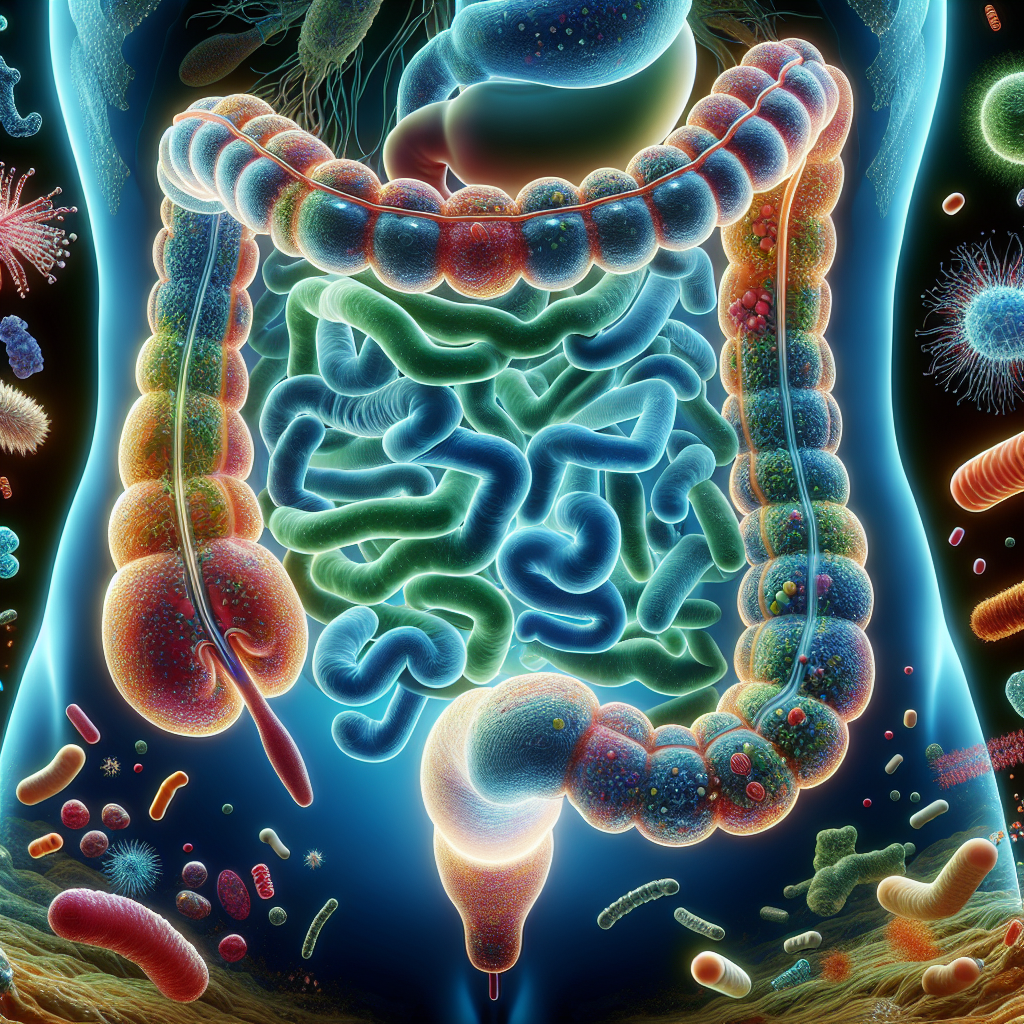The intricate dance between our genetic makeup and the functioning of our digestive system is an evolving field of study that uncovers new insights with each research breakthrough. The digestion process is not merely a mechanical breakdown of food but also a complex interaction influenced by our genes. This article delves into the burgeoning understanding of how genetics can affect digestive health and offers strategies to manage and support digestive wellness.
The Genetic Blueprint of Digestive Health
Our digestive system is a marvel of biological engineering, with each part from the mouth to the intestines playing a specific role in breaking down food, absorbing nutrients, and expelling waste. However, the efficiency of this system is not solely dependent on lifestyle or environmental factors; genetics also plays a significant role. Variations in our DNA can influence how we metabolize certain foods and how susceptible we are to digestive disorders.
Research has shown that genetic variations can affect the production of digestive enzymes, the integrity of the gut lining, and the balance of bacteria in the microbiome. For example, lactose intolerance is directly linked to a genetic variation that affects the production of lactase, the enzyme necessary to digest lactose found in dairy products.
Understanding the genetic factors that contribute to digestive health can provide insights into the management of digestive disorders. For those seeking a deeper dive into the mechanics of digestive health, Avix Health’s Digestive Health section offers a comprehensive overview, including the latest research and practical advice.
Genetics and Gut Microbiome
The gut microbiome, the community of microorganisms living in our intestines, is essential for maintaining digestive health. Genetics can influence the composition of the microbiome, which in turn can impact everything from nutrient absorption to immune system function. An imbalance in gut bacteria, known as dysbiosis, has been implicated in various conditions, including inflammatory bowel disease (IBD), irritable bowel syndrome (IBS), and even obesity.
Managing a healthy gut microbiome is critical, and understanding the causes and treatments of dysbiosis is a stepping stone to achieving this. The article on Understanding the Causes and Treatments of Dysbiosis provides in-depth information on maintaining a balanced gut flora, which is crucial for digestive health.
The Role of Genetics in Common Digestive Disorders
Several common digestive disorders have a genetic component. Conditions such as Crohn’s disease, ulcerative colitis, and celiac disease all have genetic markers that increase the risk of developing these illnesses.
For those dealing with the discomfort of gastritis, the article on How to Ease Symptoms of Gastritis Naturally offers valuable information on natural remedies that can support the digestive system and may complement genetic predispositions to better manage this condition.
Nutritional Management and Genetic Variability
Adapting your diet based on your genetic predispositions can lead to better digestive health. Nutrigenomics is the study of how our genes interact with our diet, and it’s becoming an essential tool for personalized nutrition. For example, individuals with a genetic predisposition to lower levels of stomach acid may benefit from dietary strategies that increase acid production or supplementation with digestive enzymes.
The relationship between diet and digestive enzymes is explored further in the article Role of Digestive Enzymes in Food Allergies and Intolerances, which provides a thorough discussion on how enzymes can be a critical factor in managing dietary restrictions and improving overall digestion.
External Resources for Further Reading
To broaden your understanding of the genetic influences on digestive health, here are several niche resources worth exploring:
- A comprehensive review on the genetics of gut microbiota and its influence on health and disease provides a scientific look into the complex relationship between our genes and the microbiome.
- Insights into nutrigenomics and personalized nutrition can offer strategies on how to tailor your diet to your genetic profile for optimal digestive health.
- An article discussing the genetic basis of lactose intolerance and its prevalence across populations can help understand how genetics influence this common digestive issue.
Strategies for Supporting Digestive Health
Given the pivotal role that genetics play in digestive health, it is important to adopt strategies that can help mitigate risks and promote a well-functioning digestive system.
-
Personalized Diet: Tailoring your diet to your genetic makeup can alleviate symptoms associated with genetic predispositions. This includes adjusting macronutrient ratios, enzyme intake, and avoiding trigger foods.
-
Probiotics and Prebiotics: These supplements can support a healthy microbiome, which is influenced by our genetics. Incorporating them into your diet can help maintain the balance of beneficial bacteria in the gut.
-
Regular Screening: For those with a family history of digestive disorders, regular screening can help catch issues early when they are more manageable.
-
Stress Management: Stress can exacerbate digestive issues and may interact with genetic predispositions to create a more pronounced effect. Techniques like mindfulness meditation, covered in The Benefits of Mindfulness Meditation for Digestive Health, can be beneficial.
-
Adequate Sleep: Sleep plays a vital role in the repair and maintenance of the digestive system. Ensuring you get enough quality sleep can help your digestive health.
In conclusion, the exploration of genetics in relation to digestive health is an exciting and rapidly developing field. Understanding how our genes can influence the functioning of our digestive system allows for more personalized and effective approaches to maintaining digestive wellness. By combining genetic insights with lifestyle modifications, we can support our digestive health and enhance our overall well-being.



